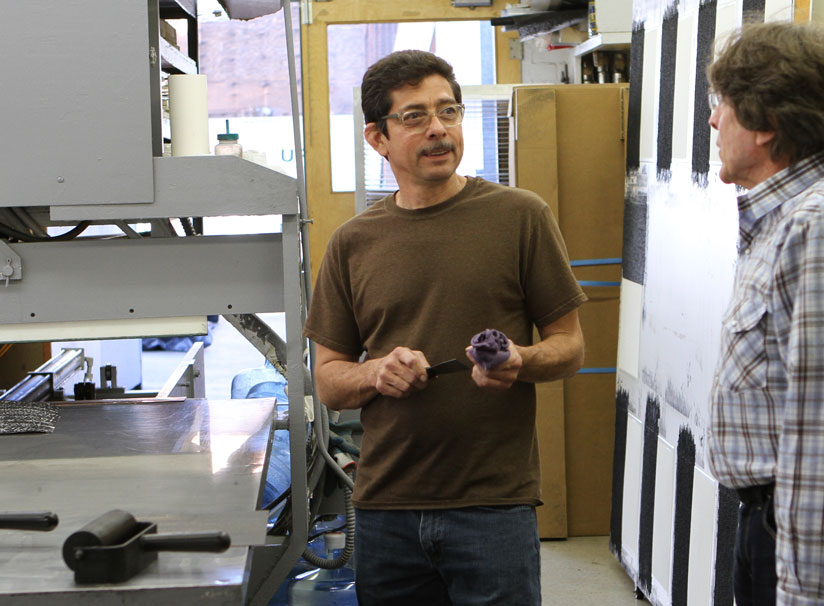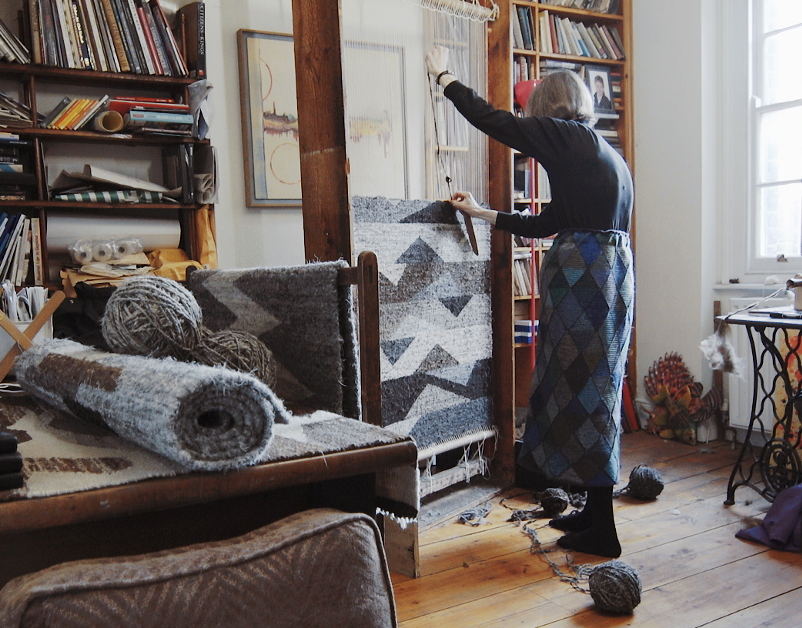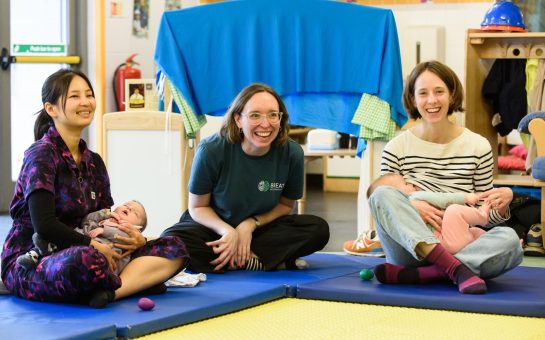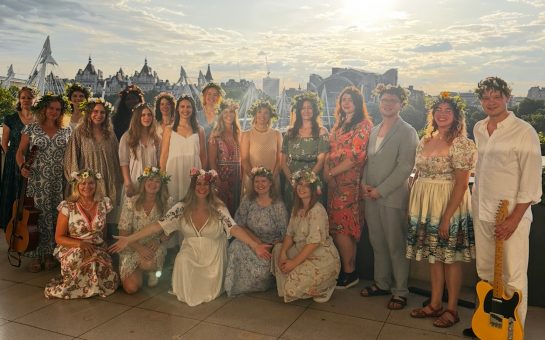![]() By Catrin Picton
By Catrin Picton
January 15 2020, 17.35
Follow @SW_Londoner
Four rare crafts were announced extinct in 2019.
As cricket ball making, gold beating, lacrosse stick making and mould & deckle making now have no known practitioners, perhaps 2020 is the year to take up an endangered and unique craft and save it from the same fate.
In the UK alone we have 37 critically endangered crafts, 70 endangered crafts and 101 currently vulnerable crafts according to Heritage Crafts.
Critically endangered crafts include; clog making, flute making, fair isle straw backed chair making, and piano making.
With employment rates levelling off, it may be a good time to revive dying crafts and trained apprentices just as we did in the 1920s.
We spoke to modern craftsmen in 2020 about their practice, their thoughts on their contribution and what the wider workforce can learn from craftspeople of today.
Printmaking Professor at the University of Southern California, Xavier Fumat said his route into perfecting printmaking began when he he took a printmaking class in college.

He said: “I decided I would learn to do that craft so I could actually make a living while I pursued making my own art. I could not believe you could make art with machines, metal plates and acids!
“It is hard to quantify the benefits of being a master at your craft. I don’t look at it in that way. I look at it as just getting to enjoy some very specific experiences.
“I work on several projects at a time. Some take multiple years, the longest being five years. I have to have my head wrapped around two to three projects at a time.
“Printing of the artwork is time consuming and taking care of the finished prints is strenuous as well since the prints can be as large as 8×15 feet! Lots of planning!
“There are few people I would truly call master printers. I am sure there many contemporary printers that are masters but for me I don’t use that term loosely. Just my personal opinion!
Perhaps perfecting one craft and practising it daily could grow repetitive however Xavier said: “Repetition does become second nature.”

Rachel Scott, 92, is certainly a master weaver. I was lucky to visit at her home in Pimlico, with weaving studios in the upper levels completely dedicated to her craft.
Books on sheep, colour, machine and methodology litter the floor as various wooden weaving machines dominate the space.
Rachel began her craft as a solution to a problem by ‘weaving as the stair carpet was wearing out.’
She now works specifically with wool and spends her days mostly spinning, weaving and knitting.
Similar to Xavier, Rachel agreed that her craft helps to ‘keep her sane’ and she finds spinning and weaving repetitive but meditative.
In her typical day she weaves all morning but by 2pm she finds her back hurts and she loses concentration so she moves on to spinning wool or knitting and listening to Radio 4.
She creates beautiful rugs, featured in Vogue and at Burberry Makers House.
“I go by the natural wool of the sheep and that often informs the rug colours and design,” she said.
I mention Wales and ask where she gets her favourite sheep wool, “My fleeces come mainly from friends who live on the Berkshire downs and have flocks of different British sheep breeds: Black Welsh, Devon Longwoolds, Shetlands, Manx Logthans and Hebrideans are the ones I use most.”
Rachel hands me two brushes to brush out the wool finely ready to spin and make wool thread to weave into her rugs. The process is long like Xaviers but worthwhile.
She explained that her biggest work was creating fifteen suits completely knitted and crocheted: no doubt quite the workload, especially for one person.
Rachel’s skill as a weaver, spinner and knitter has been applied to numerous products, from fashion to interiors, brooches to rugs, each piece with hours of her unique work.
She is truly unique specialist craftswoman that has followed her passion her entire life to become the best.
Lucy McGrath, one of the few marblers left in the UK, founded Marmor Paperie to make her craft a business.
I saw a video from the Bedfordshire Archives documenting the marbling process, italian waves, combs, colours and methods and was shocked to hear it was on the Heritage Crafts RED List of endangered crafts.
After a few years Lucy was eligible to secure funding from the Worshipful Company of Drapers to hire a part time helper in her London workshop.
Lifelong musician, Vincent Davies, began playing when he was a child and has continued to make it his profession.
We met in a pub in west London and, having grown up together, I have seen him play from school barbeques to being in different bands to touring internationally with Foals.

On taking a different path from his peers he said: “I think from having friends with multiple career paths or that try university, dislike it and try another course or another university constantly going back and forth with what they want for their future, the main benefit of choosing one profession is that your goals and ambitions don’t change from day today which gives you a certain amount of focus.
“I go to bed every night with the same dreams and wake up in the morning with the same burning desire so there is a level of consistency though you do lose that consistency in many other areas of life when trying to master one profession i.e money.
On the other hand he said: “Specialising in one field, can be very soul destroying.
“It’s good to keep your options open always, there are millions of other things to do and many could help make the world better and yet people still seem to think they want to be just one thing.
On his favourite part of being a musician: “When you realise that something you chose to do for no other reason than wanting to could affect people’s lives in any way.
“By definition, I suppose I [consider myself a specialist] would but it’s very difficult to say something like that as I don’t have any formal training and I don’t know how to read music.
In the UK in 2019, 742,400 people were participating in an apprenticeship while 2.3 million chose to go to university.
The UK is among only 15 of 193 UNESCO Members that has not yet ratified the 2003 Convention of Safeguarding Intangible Heritage and government responsibility for heritage crafts falls in the gap between agencies set up to support arts and heritage.
Julie Crenshaw, director of the Heritage Crafts Association said: “In an age of hyper-digitisation these skills can offer a viable alternative workplace and a lifestyle that can bring a sense of accomplishment and increased well-being.
“As examples of tacit knowledge that cannot be easily passed on in written form they survive only through practice and the transmission of skill from one person to another.
Find a dying craft that piques your interest and get involved, you never know, you may be saving something beautiful and down the line.




